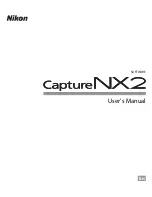
Getting Started with DECTPU
2.6 Using OpenVMS EDIT/TPU Command Qualifiers
If you invoke EVE and do not specify /MODIFY, /NOMODIFY, /READ_ONLY, or
/NOWRITE, EVE makes the first user buffer of the editing session modifiable.
If you specify /NOMODIFY, EVE makes the first user buffer unmodifiable.
Regardless of what qualifiers you use on the DCL command line, EVE makes all
user buffers after the first buffer modifiable.
If you do not specify either form of the /MODIFY qualifier, EVE checks whether
you have used any form of the /READ_ONLY or /WRITE qualifier. By default,
a read-only buffer is unmodifiable and a write buffer is modifiable. However, if
you specify /READ_ONLY and /MODIFY or /NOWRITE and /MODIFY, the buffer
is modifiable. Similarly, if you specify /WRITE and /NOMODIFY or /NOREAD_
ONLY and /NOMODIFY, the buffer is unmodifiable.
2.6.10 /OUTPUT
/OUTPUT[[=input_file.type]] (default)
/NOOUTPUT
The /OUTPUT qualifier determines whether the output of your DECTPU session
is written to a file. The application layered on DECTPU is responsible for
processing this qualifier.
To determine whether you specified /OUTPUT on the DCL command line, use the
following call in the application:
x := GET_INFO (COMMAND_LINE, "output");
The preceding call returns 1 if /OUTPUT was specified, 0 otherwise. To fetch the
name of the output file specified on the command line, use the following call:
x := GET_INFO (COMMAND_LINE, "output_file");
For more information on GET_INFO, see the DEC Text Processing Utility
Reference Manual.
If you do not specify any form of /OUTPUT on the DCL command line, DECTPU
specifies /OUTPUT but does not supply a default file specification.
In EVE, when you use /OUTPUT, you can name the file created from the main
buffer when you exit from DECTPU. For example, the following command causes
DECTPU to read in a file called LETTER.RNO and to write the contents of the
main buffer to the file NEWLET.RNO upon exiting from DECTPU:
$ EDIT/TPU/OUTPUT=newlet.rno letter.rno
If you use /OUTPUT= to specify an output file, EVE modifies the buffer even if
you do not modify the actual text. In this case, when you exit from EVE, EVE
writes the buffer to the output file you specify.
By default, the output file has the same name as the input file, and the version
number is one higher than the highest existing version of the input file. You
can specify a different name for the output file by using the file specification
argument for the /OUTPUT qualifier.
In EVE, specifying /NOOUTPUT causes EVE to suppress creation of an output
file for the first buffer of the editing session. Using /NOOUTPUT does not
suppress creation of a journal file.
2–16 Getting Started with DECTPU
















































